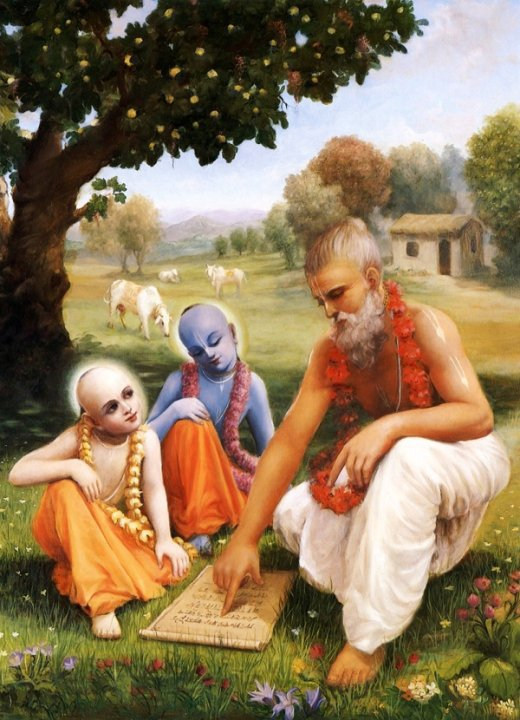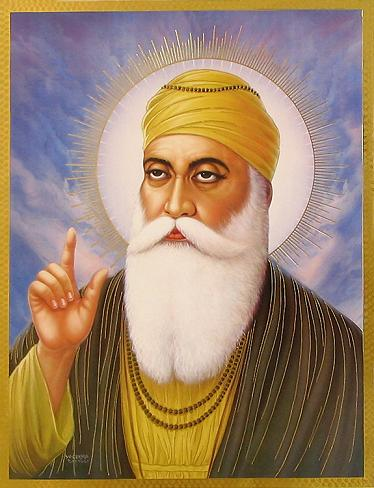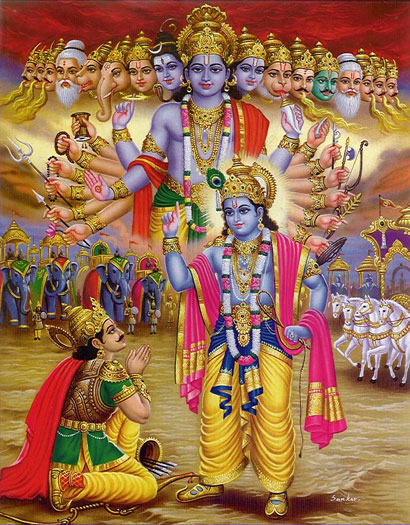Guru Poornima (25th July’10)

The full moon day of the month of Aashadha (July-August) is traditionally celebrated as Guru Poornima. Guru means teacher and Poornima means the full moon day of the month. This day is also known as Vyas Poornima. The great sage Ved Vyas classified the accumulated spiritual knowledge of the Vedas under four heads – Rig, Yajur, Saama and Atharva. He also composed the authentic treatise of Brahma-sootras to explain the background of Vedas. He also wrote the eighteen Puranas, the stories of our great heroes and saints, to carry the spiritual and moral teachings contained therein to the common masses. Therefore, he is the Adi-Guru for all people.

How does the Sanskrit word (Guru) come from?
The word “Gu” means darkness or ignorance. “Ru” denotes the remover of that darkness. Therefore, one who removes darkness of our ignorance is a Guru. A Guru also inspires and guides us on to the path of God-realization. In other words, Guru is the one who gives us knowledge.
The Guru helps us to give up the ignorance, light the lamp of wisdom and ultimately merge in the Divine. It is very well expressed in one of the verses of the Hindu scriptures.
गुरुर्ब्रह्मा गुरुर्विष्णुः गुरुर्देवो महेश्वरः |
गुरुः साक्षात् परब्रह्म तस्मै श्रीगुरवे नमः ||
Meaning: Guru is Lord Brahma, Guru is Lord Vishnu, Guru is Mahesh (Lord Shiva). The Guru is Parambrahman (God). Thus, prostrations unto the Guru.
Devotional worship of the Guru – the preceptor – is one of the most touching and elevating features of the Hindu cultural tradition. In Hindu tradition, the Guru is looked upon as an embodiment of God himself. It is through his grace and guidance that one reaches the highest state of wisdom and bliss. The Guru or teacher also guides us into the right path when we lose track. Guru also boosts our energy when we run out of steam.
On the auspicious day of Guru Poornima, disciples perform a puja of their respective spiritual preceptor (Guru). The best form of worshiping Guru is to follow his teachings, remember/implement them and propagate them.
Need for the Guru
Guru is one who molds the student’s personality. That is why someone not having a Guru is looked down upon as being an orphan (by our scriptures). Sant Kabir ji says:
निगुरे का नहीं कोई ठिकाना , चौरासी में आना जाना
यम (राज) का बने मेहमान , सुन लो चतुर सुजान , निगुरा नहीं रहना ..
निगुरा होता हिय (ह्रदय) का अँधा , खूब करे संसार का धंधा ,
पड़े नरक मो झाल , सुन लो चतुर सुजान , निगुरा नहीं रहना ..
Meaning:
There is no respite from the cycle of births and deaths for the one without a Guru (nigura). He is a frequent guest to Yamraaj (the Lord of Death) as he goes through the 84 lakh yonis (life forms). The one without a Guru devotes all his time attending to the world, forgetting the Lord Almighty. As a result, he ends up in various hells. Sant Kabir ji advises that one should not remain a nigura (one who has no Guru), and seek the shelter of a true saint for his own well being.
Even Lord Vishnu-avatars like Rama and Krishna subjected themselves to the tutelage of worthy gurus like Vashishta and Sandipani.

Guru Nanak Dev Ji says:
जे को जनम मरण ते डरे, साध जाना की शरणि पड़े |
जे को अपना दुःख मिटावे, साध जना की सेवा पावे ||
Meaning: One who would like to be delivered from the cycles of birth and death should seek the shelter of a saint. One who would like to be freed from all sorrows should engage himself in the service of a saint.
The great Guru Chanakya used to say that the future of the next generation is dependent on the mother and the Guru. These two personalities have the ability to make the coming generation either good or bad.
Guru is greater than God
Upanishads mention the five signs of the true Guru. In the presence of the Guru:-
1) Knowledge flourishes (Gyan raksha);
2) Sorrow diminishes (Dukh kshaya);
3) Joy wells up without any reason (Sukh aavirbhav);
4) Abundance dawns (Samriddhi);
5) All talents manifest (Sarv samvardhan).
Guru is given more importance than God. There is an understanding that if the Guru and God both appeared together, then one should pay respect to the Guru first, since Guru has been instrumental in leading him to God.
Great saint Kabir was once asked, “If Guru and God both appear before you, whom should you prostrate first?” Kabir replied, “I bow before Guru who introduced God to me!”
गुरु गोविन्द दोनों खड़े, काकु लागे पाय |
बलिहारी गुरु आपने, गोविन्द दियो बताये ||

Lord Krishna says to Arjuna in the Bhagavad-Gita:
तद्विद्धि प्रणिपातेन परिप्रश्नेन सेवया।
उपदेक्ष्यन्ति ते ज्ञानं ज्ञानिनस्तत्त्वदर्शिनः।।4.34।।
Acquire the transcendental knowledge from a Self-realized Master (Guru) by humble reverence, sincere inquiry, and by service. The wise ones who have realized the Truth will impart the Knowledge to you.
************************************************************************************************************************
Special Yog For Students on 25-July 2010:



